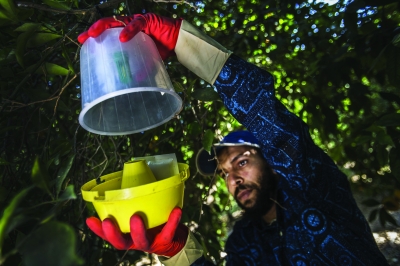Preparing bankable business plans with RuralInvest

Participatory, interactive and bottom-up – that is the essence of RuralInvest, a tool developed by FAO nearly two decades ago for preparing sustainable agricultural and rural investment projects and business plans. FAO continues to fine-tune the tool, which is now available in nine languages.
RuralInvest can be used by local communities, entrepreneurs, field technicians and financing institutions to assess the financial feasibility, risks and overall sustainability of a proposed investment. Investments, generally small or medium-sized, range from income-generating projects that improve rural livelihoods to non-income-generating projects that benefit communities, such as improved healthcare services, drinking water supplies and sewage disposals. E-learning courses, face-to-face trainings and complementary video tutorials make up the full RuralInvest package offered by FAO.
In December 2017, a practitioners’ workshop helped calibrate the training tools to better meet users’ needs, upgrade the website and take stock of the impact of RuralInvest. For example, Jane Ndeti, a forest investment manager with the Kenya Forest Service, was one of the first Kenyans to receive training on RuralInvest in 2009. By 2017, her team of 44 officers had trained over 700 groups on RuralInvest. More than 2,000 farmers have since benefitted, and the loan recovery rate stands at an impressive 99.9 percent.
In Mozambique, the Government is encouraging financing institutions and commercial banks to disburse small-scale loans to help rural farmers invest and grow their businesses and move beyond subsistence farming. It has chosen RuralInvest to assess the proposed investment plans. FAO has trained local staff from the World Bank and the Eduardo Mondlane University on the tool, especially its income-generating component. Pedro Arlindo, World Bank Task Team Leader, praised the training for “providing analysis of various business plans, for example on the production of fruits and vegetables and their supply to urban markets, as well as investments in mechanization for higher maize and bean yields.” The University now plans to incorporate RuralInvest training into its master’s course on rural development to create the next generation of trainers and ensure the development of high-quality agricultural business plans.
Image: ©FAO/Alessandra Benedetti
